Call Us Today: +1 866 205 2414
CIM Capital Projects Symposium 2024 Insights
By Kenny MacEwen
This year, the CIM Capital Projects Symposium’s topic of consultants sparked lively debate. Attendees explored the advantages and pitfalls of bringing outside expertise into mining projects. While many consultants bring valuable skills and problem-solving abilities, others may, intentionally or not, prolong issues, resulting in significant costs without advancing the project. The conference underscored a simple truth: not all consultants are created equal, and the onus is on the project Owner’s Team to make informed choices when selecting and managing them.
The Role of Good Consultants: Strategic Problem Solvers
Good consultants offer a unique and focused perspective, equipped to efficiently identify and address project challenges. These professionals bring deep industry experience, advanced technical skills, and specialized knowledge that can accelerate a project and resolve bottlenecks. Their proactive and results-driven approach aims to deliver solutions quickly and effectively, moving projects forward without unnecessary complications.
Various engineering consultants at the Conference shared examples of project collaborations that added value by proposing practical, cost-effective solutions to complex issues. These consultants focus on enhancing project outcomes and ensuring each phase aligns with the project’s budget, timeline, and overall goals. Working with these problem solvers can result in streamlined operations, minimized delays, and substantial cost savings for mining companies.
The Problem Prolongers: Consultants Who Profit from Complexity
On the other hand, some consultants are more focused on extending their engagement than on solving problems. These consultants increase their billable hours and fees by prolonging issues or introducing unnecessary layers of complexity, often without delivering meaningful progress. These problem-prolonging consultants can add layers of analysis, suggest redundant meetings, or advise incremental adjustments that don’t resolve the root cause of issues.
Conference discussions highlighted the financial risks of engaging consultants prioritizing profit over performance. Projects can fall into a cycle of “analysis paralysis,” where constant assessments and reviews delay real action, pushing timelines back and inflating costs. For project owners, this approach undermines project objectives and can lead to substantial budget overruns and stakeholder frustration.
Contractor selection has become even more important in recent years with the drive to enhance local capabilities and employ local companies to execute the work and develop our project. This has been used successfully on recent projects, as underscored by Jooa Zanon’s presentation “Delivering successful Mining Projects in Brazil,” outlining the success of the Tucumã Project in engaging smaller local Brazilian companies. This execution approach requires proper pre-planning and local capacity assessment to ensure that the right scopes are assigned to companies with the capability and the capacity to execute them. This needs to be considered early in the study gating process, as splitting multiple engineering or fabrication packages into smaller scopes to get better local engagement will affect your project budget and baseline schedule. Assessments need to be completed early in the study development cycle, and local partnerships need to be assessed and actioned prior to the start of project execution planning to ensure success.
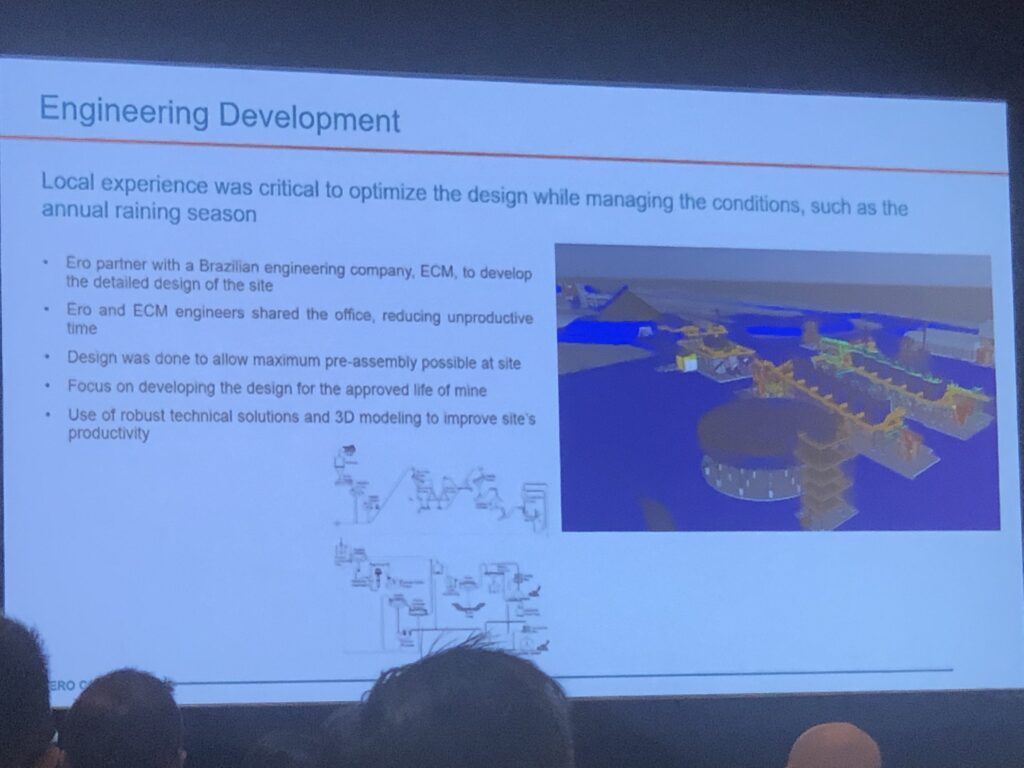
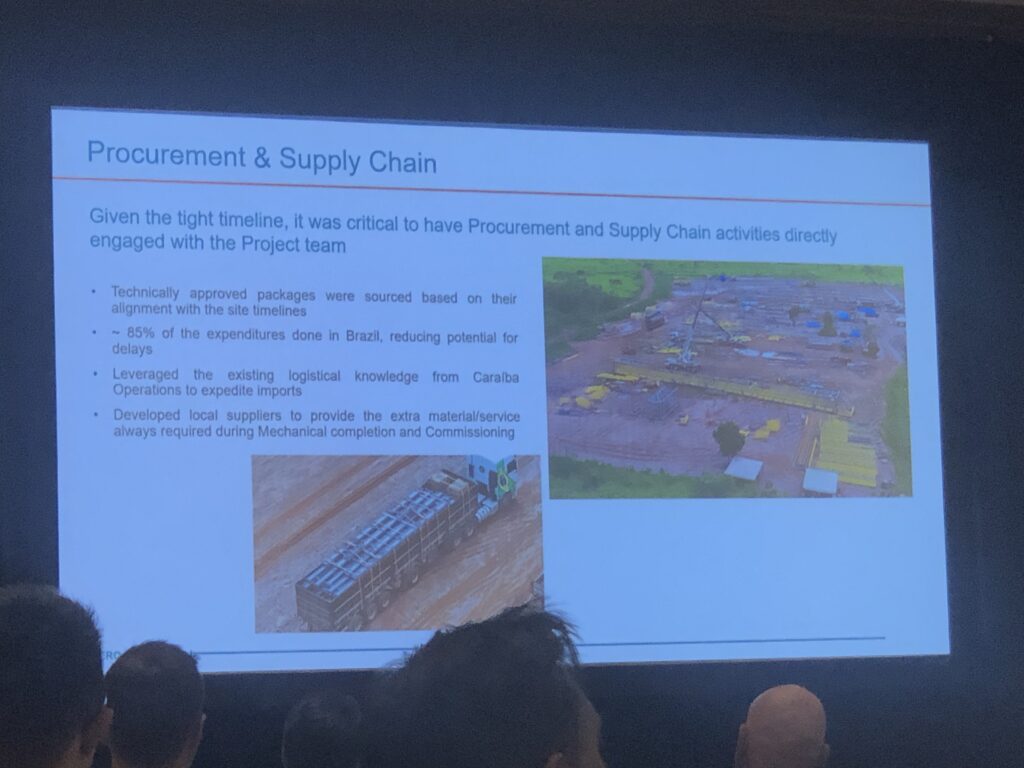
Legal & Financial Risks: The Responsibility of Owners
The conference underscored an essential point: project owners must select and manage consultants and contractors wisely. Since consultants significantly influence critical decisions, missteps can lead to financial and legal risks. Owners who don’t maintain a firm hand in consultant management may face unanticipated liabilities or budgetary strain. The selection of the correct contract template is of equal importance to the selection of the consultants and contractors themselves. Certain contract structures, such as EPC or lump sum engagements, can appear to transfer execution risk from the Owners. Still, without a correct definition of inputs, rely-upon information, and battery limit interfaces, this will likely end up being more costly to the Owner in the long run via change orders and the award of superfluous time & material contracts to close scope gaps. As noted by Jesse Sherrett of A&O Shearman in his presentation “Delays and Cost Overruns on Major Mining Projects: Managing Risks and Mitigating Consequences,” Owners must properly allocate risk between the Owner, Contractors, and technology providers by properly allocating these risks upfront.
As noted by Olga Kovalik’s Keynote on “Improving Performance in the Mining Industry,” mining companies have a long history of poor capital deployment and project delivery. To avoid these pitfalls, project owners should actively oversee consultant oversight from the start and learn from the lessons of the past to gain credibility from investors and improve performance. Clearly defining project objectives, setting performance metrics, and establishing regular check-ins effectively keep consultants aligned with project goals. This oversight reduces risk and fosters a productive, collaborative environment where consultants are more likely to deliver results rather than simply prolong their engagement.
Key Differences: Accountability & Transparency
A defining difference between problem-solving and problem-prolonging consultants is their commitment to accountability and transparency. Effective consultants clearly state their objectives, provide actionable plans, and communicate their progress regularly. They are open about potential challenges and address them head-on, ensuring owners remain informed and empowered throughout the project.
Conversely, problem-prolonging consultants tend to lack transparency. They may provide vague recommendations, avoid clear timelines, or withhold specifics on their work scope. By keeping the project owner in the dark, they can justify longer engagements and higher costs, which ultimately compromises the project’s success.
One much-talked amount model from the Capital Projects Symposium was the Integrated Project Team model, as presented by Ryan Dutrisac of WSP. While this model may benefit decision-making at the project team level, at the end of the day, the Owner still holds accountability for project delivery and will still end up paying for any project over-runs or poor financial performance. A firm Owner’s Team is still required to maintain proper project governance, even in a collaborative execution model. This theme was also highlighted in Kent Burkholder’s presentation, “8% returned over the past two decades: Is it our fault?”
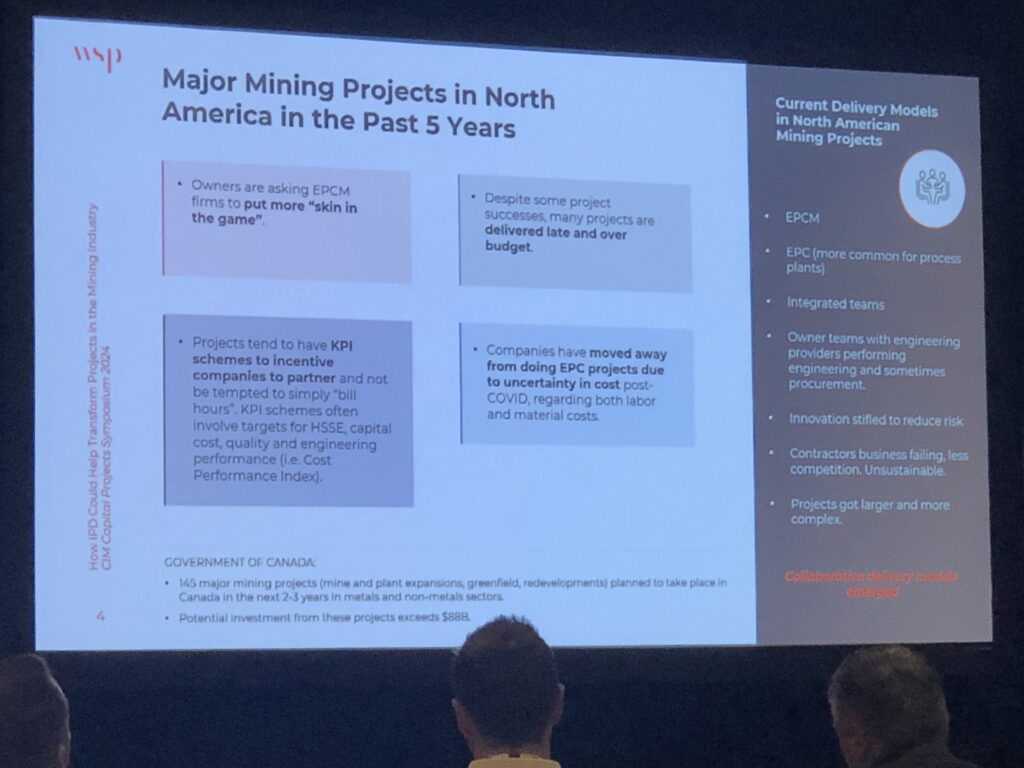
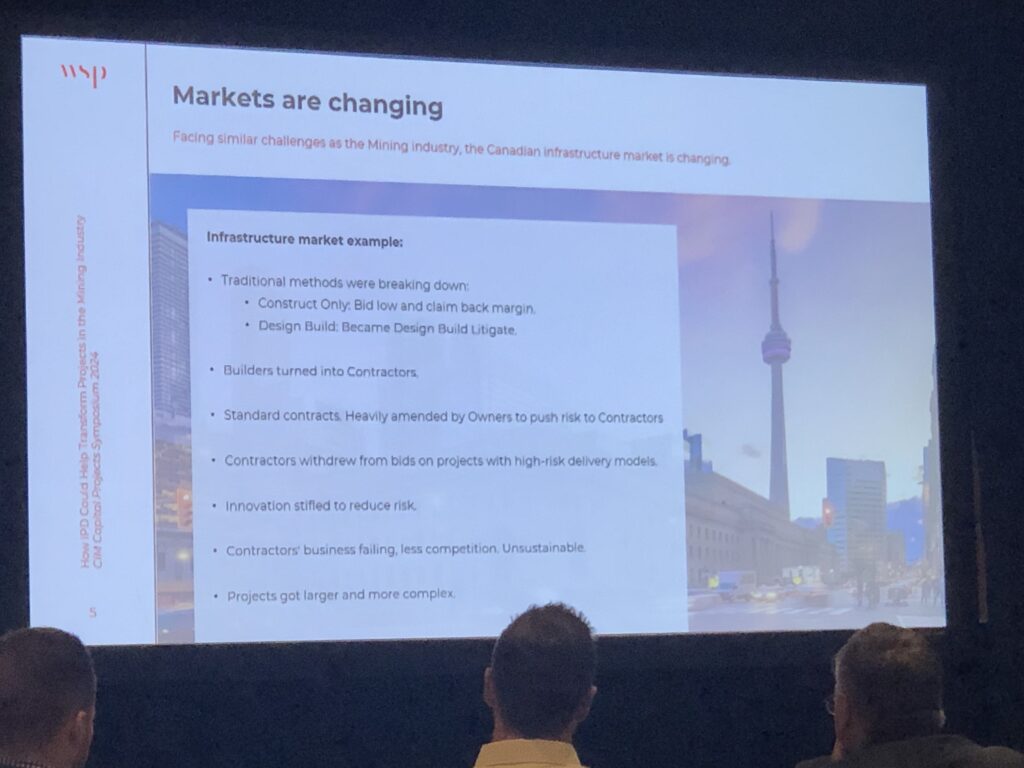
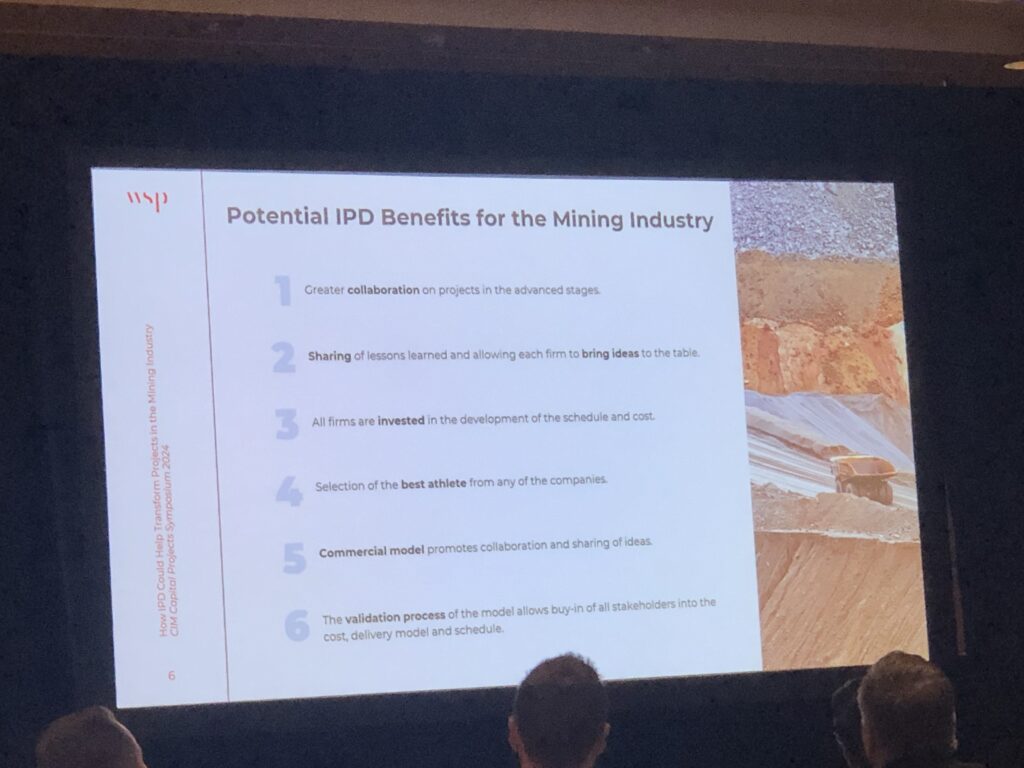
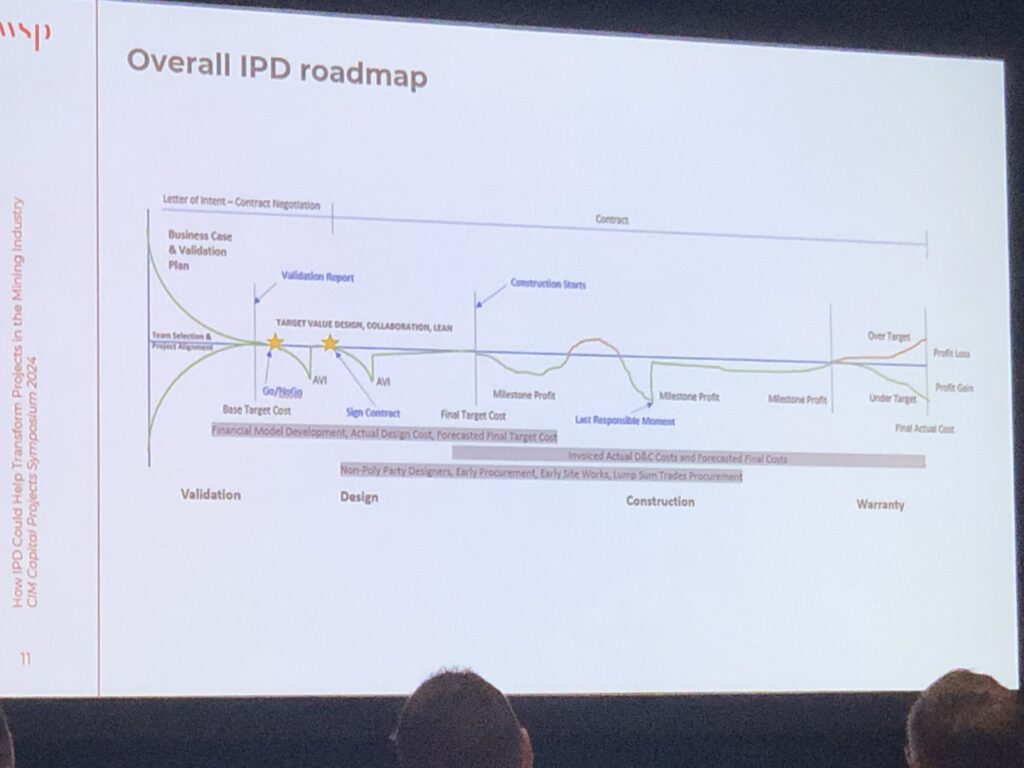
Choosing the Right Consultant: Tips for Project Owners
As conference discussions highlighted, choosing the right consultant involves more than looking at resumes. Owners should seek out consultants who demonstrate the following:
Distinguishing Between Value & Expense
Consultants can be valuable partners when managed effectively, providing the specialized knowledge needed to advance mining projects. However, as the CIM Capital Projects Symposium discussions highlighted, owners must distinguish between those who solve problems and those who extend them. By choosing and overseeing consultants wisely, project owners can avoid unnecessary costs, ensure accountability, and build a team that genuinely contributes to project success.
Let’s connect if you’re considering consultants for an upcoming project and want to discuss effective selection and management strategies. Together, we can explore ways to ensure your project receives the focused, results-driven support it deserves.
TMG specializes in executive and operational consulting for the mining and oil and gas sectors. It offers tailored oversight and strategic guidance across all project stages to ensure optimal outcomes from conception to execution.
TMG committed to diversity and inclusion, based on the undisputed fact, that a fully inclusive environment, fosters a unique perspectives that can solve challenging problems and creates value, within the company, for our clients, the communities of which we work, and the world at large.
TMG’s corporate vision and values, are to honour the rights and cultures of all people and respectfully approach all business, with fair dealings and establishing and maintain a mutually respectful relationship.
TMG acknowledges that our offices are located on traditional lands of divers First Nations and Indigenous peoples. Guided by the Constitution of both Canada & the USA, the United Nations Declaration on the Rights of Indigenous Peoples (UNDRIP) and the recommendations of all Truth and Reconciliation Commission as a framework, we are committed to taking ongoing positive and concrete steps towards reconciliation.
Copyright © 2024 Technical Management Group Ltd.